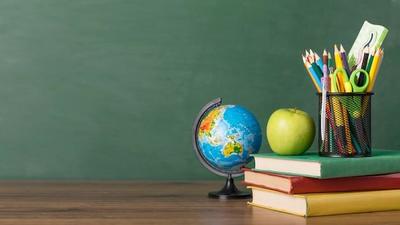In today's globalized world, where interconnectedness and diversity have become the norm, multicultural education is more important than ever. As our societies become increasingly diverse, it is crucial for educational institutions to embrace and celebrate this diversity. Multicultural education aims to provide students with a comprehensive understanding and appreciation of different cultures, languages, religions, and perspectives. By doing so, it not only promotes cultural competency but also fosters inclusion and prepares students to thrive in an interconnected global society.
One of the key benefits of multicultural education is that it promotes cultural competency. By learning about different cultures, students develop an understanding and appreciation for the values, traditions, and customs of others. This understanding helps to break down stereotypes and prejudices, fostering empathy and respect for diversity. Cultural competency also enhances communication and collaboration skills, as students learn to navigate cross-cultural interactions and work effectively with people from different backgrounds. In a globalized world, where cross-cultural communication is increasingly prevalent, cultural competency is a valuable skill that can contribute to personal growth and professional success.

Fostering Inclusion and Empathy
Multicultural education also plays a crucial role in fostering inclusion and empathy. By exposing students to diverse perspectives and experiences, it challenges their own biases and encourages open-mindedness. When students learn about different cultures and the challenges faced by minority groups, they develop empathy and a sense of social responsibility. This understanding of others' experiences fosters a more inclusive and compassionate society, where individuals value and respect each other's differences. Multicultural education creates a safe and inclusive learning environment where students from all backgrounds feel valued and supported.
Preparing Students for a Global Society
In a globalized world, where international travel, migration, and global cooperation are common, multicultural education is essential in preparing students for the challenges and opportunities of a global society. By learning about different cultures, languages, and global issues, students develop a global perspective and cross-cultural communication skills. This prepares them to engage with people from diverse backgrounds, navigate cultural differences, and collaborate on a global scale. Multicultural education equips students with the knowledge and skills needed to thrive in a globalized workforce, where cultural competency and adaptability are highly valued.
Enhancing Critical Thinking and Problem-Solving Skills
Multicultural education goes beyond teaching about different cultures; it also encourages critical thinking and problem-solving skills. By exposing students to different perspectives, multicultural education challenges them to think critically and analyze complex issues from various angles. This enhances their ability to think creatively, consider multiple solutions, and make informed decisions. In a world that faces complex global challenges, such as climate change, poverty, and social inequality, critical thinking and problem-solving skills are vital. Multicultural education prepares students to become global citizens who can think critically and contribute to finding innovative solutions to these challenges.
Breaking Down Barriers and Promoting Peace
By promoting understanding, empathy, and cultural competency, multicultural education has the potential to break down barriers and promote peace. Through education, students learn about the commonalities that unite all human beings and appreciate the diversity that enriches our world. They develop the skills to engage in dialogue, resolve conflicts peacefully, and work towards a harmonious coexistence. Multicultural education nurtures a sense of global citizenship and encourages students to be active participants in creating a more just and peaceful world.
Conclusion
In an increasingly interconnected and diverse world, multicultural education is essential. It promotes cultural competency, fosters inclusion and empathy, prepares students for a global society, enhances critical thinking and problem-solving skills, and contributes to breaking down barriers and promoting peace. Educational institutions have a responsibility to embrace and integrate multicultural education into their curriculum and teaching practices. By doing so, we can empower future generations with the knowledge, skills, and attitudes needed to navigate and thrive in a globalized world.